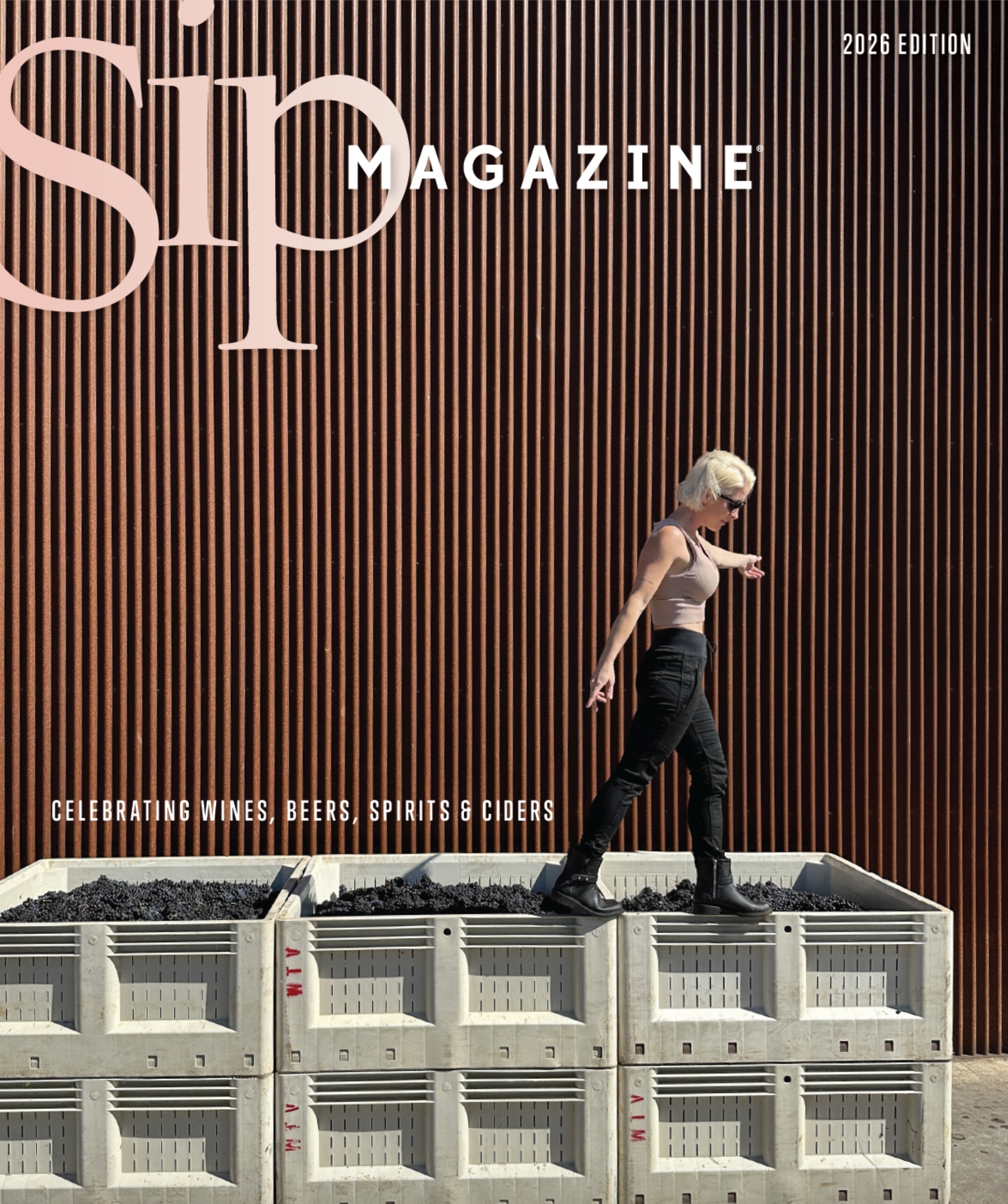Chris and Cameron Kontos were born into the Walla Walla wine industry. With maternal roots in the valley as far back as 1868, generations of wheat farming under the belt and following their father’s footsteps into winemaking, the brothers founded Kontos Cellars on regional and kindred inspiration.
A regular mantra for partner Chris Kontos, the Walla Walla native urges wine drinkers to dig deeper and find the smaller local wineries that are carrying the torch of the region’s stacked tradition of winemaking, including the winery his father, Cliff, opened in 1998. “Our dad has always been kind of the focal point of our existence here,” Kontos says, crediting Cliff’s Fort Walla Walla Cellars for their initial experiences. “Cameron’s first introduction to winemaking was through making wine with Dad.”
Kontos, who had followed his father into his day job of wheat farming, says he felt his business skill set was a natural fit with that of his younger brother Cameron, who at the time was the assistant winemaker at Forgeron Cellars, and by the fall of 2007, the two had set the building blocks for opening their own winery. A few hours of research on how to exemplify their Washington State heritage and an admittedly tipsy 3 a.m. Photoshop session later, the brothers had created the dragonfly logo (the official state insect) and a namesake winery was in early development.
Due to demands at work, the two put their concept on hold, until the following summer when the dragonflies swarmed Walla Walla, from the wheat field to the wine cellar. “It was just a constant reminder that we should keep thinking and building and that we needed to stay on task and make this work,” Kontos recalls. “So, in a sense, the dragonfly logo chose us. We stumbled across it but it wouldn’t let us go.”
Today, Kontos Cellars produces 2,300 cases of primarily Bordeaux-style wines annually, keeping much of it local by selling nearly all of the wine through the downtown Walla Walla tasting room. With Cameron at the helm of the winemaking, Kontos and both of their wives all take roles in the family business, together producing wines with a sense of place and devotion to Walla Walla fruit.
While some winemakers aspire to become national, high-production wineries, the brothers Kontos pride themselves in the personal touch this smaller scale allows them. “We have some really great, loyal customers who are always excited to share us and our wine with their friends, [which], to me, is just a wonderful way to grow the business,” Kontos says about their grassroots model, noting that a Kontos is usually behind at the counter during tasting room hours. “It’s not just pulling a number out of a hat and trying to figure out how to sell it. It’s this slowly evolving, slowly growing business that we’re, at this point, having a hard time keeping up with. It’s been a nice way to roll.”
The winery also rolls out a unique experience for wine lovers to take in the terroir of Walla Walla Valley — through a pheasant hunt. On Oct. 22, wine club members will join the Kontos clan for a hunt on one of the family farms, set along a stretch of the Touchet River, just 10 miles north of Walla Walla proper. Afterward, hungry hunters and more will sit to enjoy the spoils of the day’s game at the winery, prepared by Chef Rich Koby of the Fat Duck Inn and the Plow & Vine food truck.
Beyond dragonflies, pheasants and production demands, the brothers are currently anticipating the special release of a father-son wine, The Boss. The Bordeaux-style blend is collaboration between Cliff and Cameron Kontos and will even feature the symbol from the elder Kontos’ old cattle brand from his former ranching days.
Even more than the release of this new wine, the Kontos brothers are inspired and honored to carry on the legacy of both Walla Walla and their own family. “People sometimes tend to bemoan the fact that a lot of wineries are coming in from out of town,” Kontos says of the booming wine region. “But if you really look at Walla Walla, you’ll find a lot of really great family stories and rich history around the local wine industry here.”









